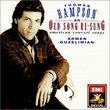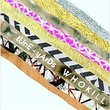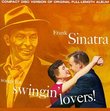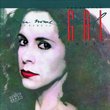| All Artists: Ornette Coleman Title: Music of Ornette Coleman Members Wishing: 1 Total Copies: 0 Release Date: 1/24/2006 Album Type: Import Genre: Jazz Style: Avant Garde & Free Jazz Number of Discs: 1 SwapaCD Credits: 1 Other Editions: Something Else!:The Music of Ornette Coleman UPCs: 025218616324, 025218016315, 025218016346, 090204064212, 090204079421, 090204704927 |
Search - Ornette Coleman :: Music of Ornette Coleman
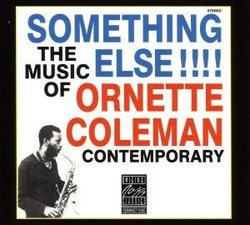 | Ornette Coleman Music of Ornette Coleman Genre: Jazz These are tunes that Coleman wrote in his early 20s, that he finally got a chance to record in his late 20s, in 1958. He had, meanwhile, been leading the life of a musical maverick, often-fired by leaders perturbed by his ... more » |
Larger Image |
CD DetailsSynopsis
Amazon.com These are tunes that Coleman wrote in his early 20s, that he finally got a chance to record in his late 20s, in 1958. He had, meanwhile, been leading the life of a musical maverick, often-fired by leaders perturbed by his idiosyncratic approach. He was, after all, intent on digging up and replanting jazz. Hearing the startling exuberance in Coleman's compositions, and in his own whinnying playing, one senses that--truly--an annunciation is being made: Here is Something Else. With sublime assurance, Coleman was breaking free from the dictates of chordal playing, in search of increased melodic and harmonic opportunities. Pianist Walter Norris obliges by generally staying out of the way, after session producers put him in it--it is clear that the piano was not the instrument that would assist Coleman's mission. --Peter Monaghan Similarly Requested CDs
|
CD ReviewsJoyous, early Ornette Jonathan Mayhew | Lawrence, KS USA | 08/30/2000 (4 out of 5 stars) "Ornette Coleman's tunes on this early album are bouncy and melodic. The overall mood is up-beat and optimistic. Purists will prefer "The Shape of Jazz to Come" and other recordings by his more austere pianoless quartet recorded a few years later. But for me the piano and bass playing fairly conventional jazz changes behind Ornette and Don Cherry "works"-- even if it really shouldn't. And Billy Higgins' light touch on the drums adds just the right tone: I can picture him smiling as he plays. "The Blessing" has become a jazz standard, and all the quirky melodies stay in your head for a long while. This should be in your Ornette collection, whether it is the first or last recording of his you buy." This is a severely underrated album Jonathan Mayhew | 10/05/2000 (5 out of 5 stars) "The piano sounds fine! This is rediculous. In fact, you hardly notice it. It's very low in the mix. What a great album! All the tunes are his, the saxaphone playing is excellent (incredibly smooth). The notes Coleman puts together on this album are definitely strange, but the overall effect is not overwhelming cacophony, like found on Free Jazz. In fact, it's an incredibly straight forward album. Coleman was an innovator, but sometimes you just want to relax and take a break from his edgier music, regardless of how innovative it may have been. In summary- the songs are relatively simple, but certainly not boring. The sax playing is EXCELLENT. I like it better than "shape of jazz to come" which, i think, is an overproduced album. What is that crappy treble sound in Atlantic Jazz recordings? Anyway, you won't find it on this album." A Good Start For Ornette, But Not For You Michael B. Richman | Portland, Maine USA | 07/18/2000 (3 out of 5 stars) ""Somethin' Else" might have been a good start for Ornette Coleman's recording career, but it is not the best place to start your Ornette Coleman CD collection. The tunes are good, and 3/4 of his classic Atlantic quartet (Ornette, Don Cherry and Billy Higgins) are present, but the album lacks musical cohesion. This is laregly due to the inclusion of piano in the group. While Paul Bley may have been able to accompany Ornette on some level, Walter Norris does not, and piano in general was not well-suited to Ornette's music. In fact, I'm not sure he ever recorded with a piano player again until recently with Geri Allen on the "Sound Museum" sessions. Ornette fans will certainly want to get this, but others should have a dozen other Ornette CDs under their belt before this one."
|




